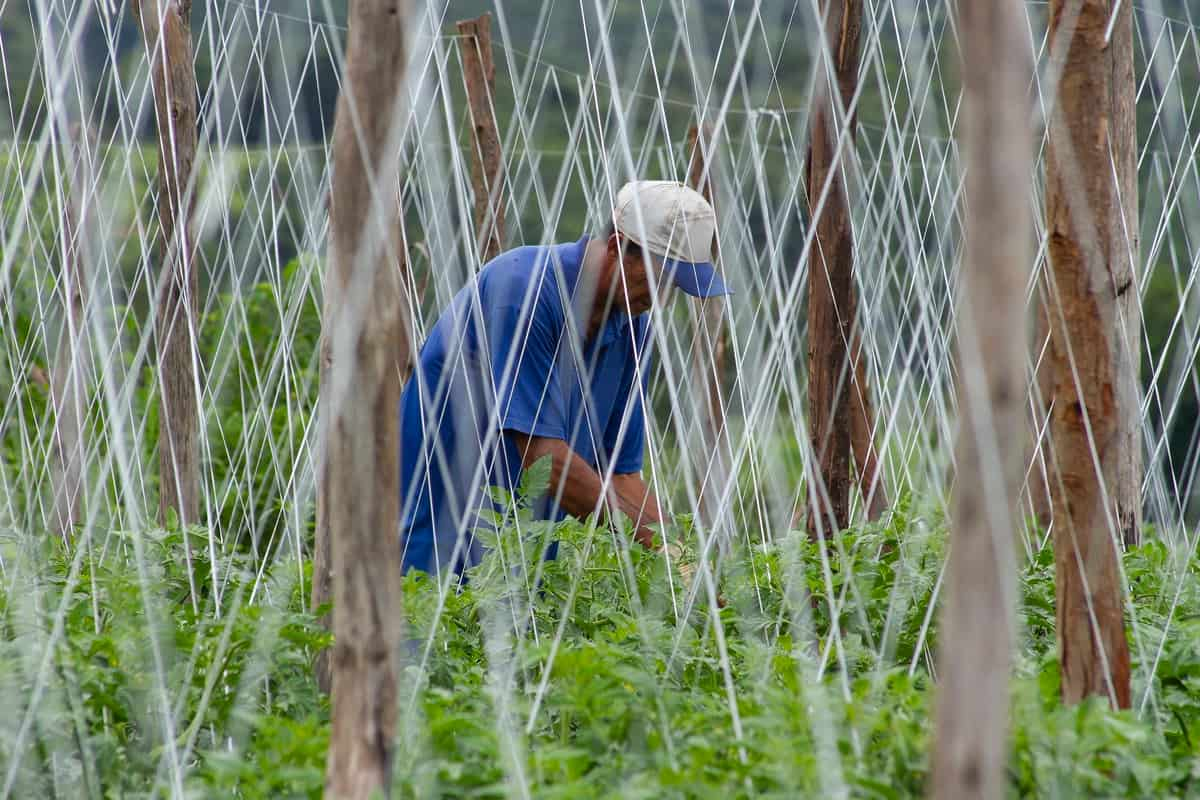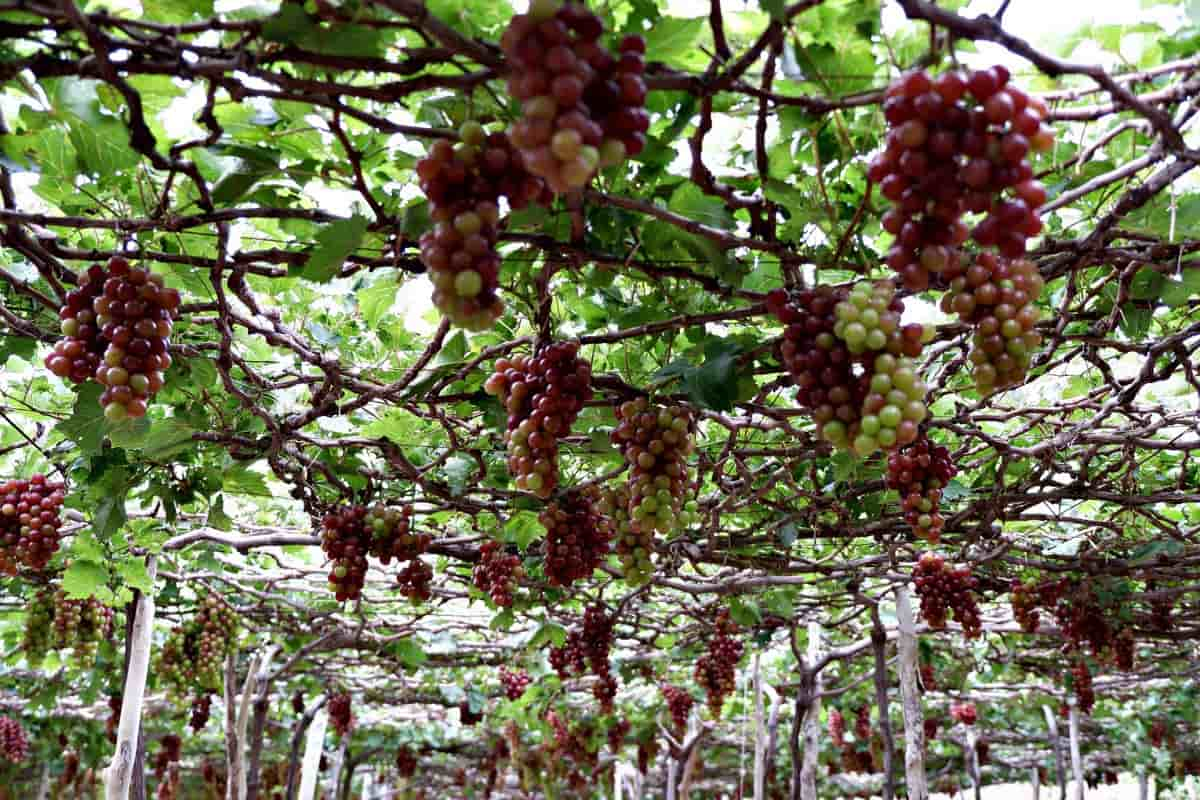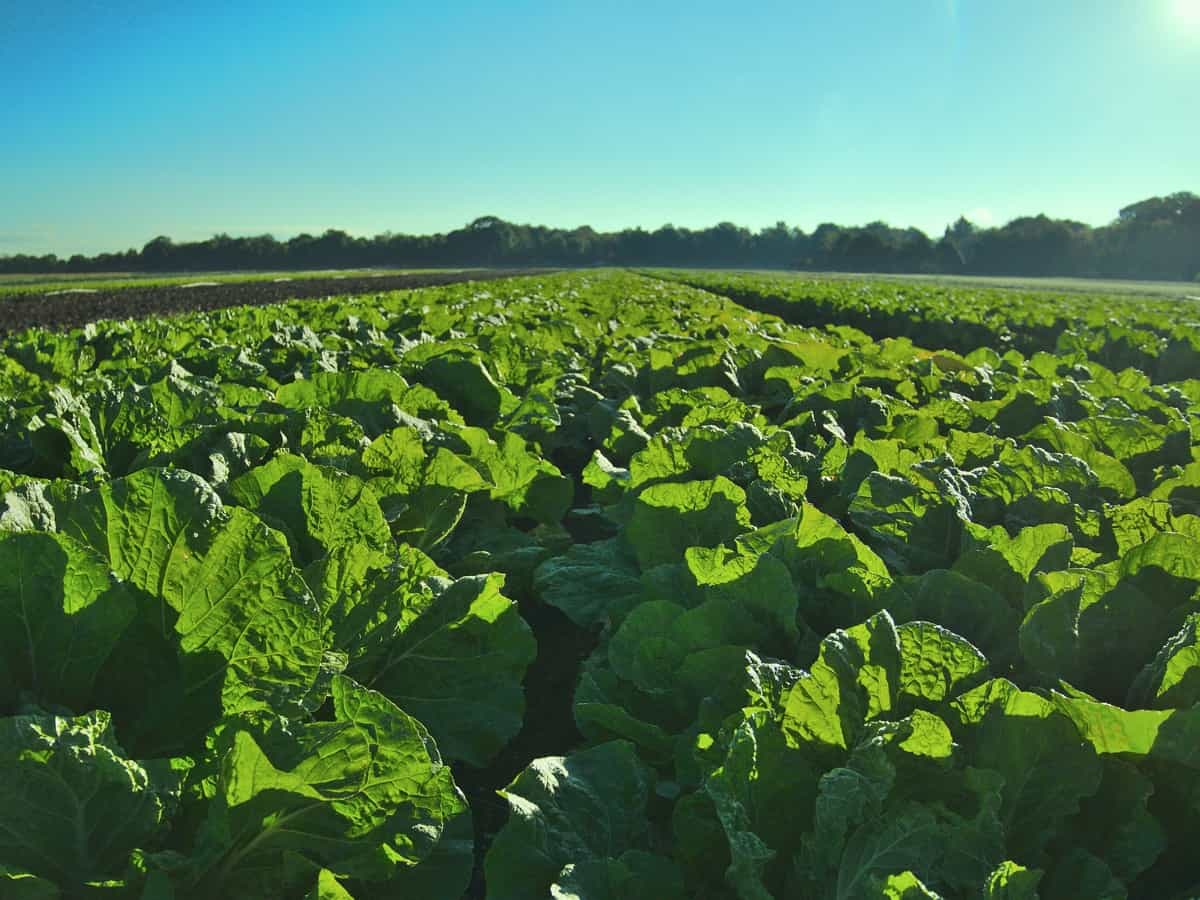It is a type of agriculture that uses natural systems and practices to produce food. Organic farming has several benefits over conventional farming: it is more ecologically sustainable, it uses less water and energy, it produces more nutritious food, and it reduces pesticide use. Israel is one of the most fertile countries in the world, with a long tradition of organic farming. In addition, Israeli agriculture is one of the most environmentally friendly in the world, generating 98% fewer greenhouse gases than traditional agriculture.

How to start organic farming in Israel
Organic farming importance in Israel
- In Israel, organic farming has been practiced for over 20 years, and there are now over 100 certified organic farms in the country. The main advantage of organic farming is that it allows farmers to use natural methods without synthetic pesticides or fertilizers, which can harm the environment and human health.
- Additionally, organic farming helps preserve farmland by using techniques like crop rotation and Integrated Pest Management (IPM), which helps keep pests under control while allowing crops to grow slowly so they don’t need large amounts of fertilizer.
- Organic farming has become increasingly popular in Israel as the country strives to maintain high agricultural standards and protect the environment.
Steps to start an organic farming business plan in Israel
- The first step is researching which organic farming method will work best for your land and climate. Several types of organic farming are available in Israel, including soil-based, biodynamic, ecological, and integrated grazing systems.
- Once you have decided on a type of organic farming, you need to find a landowner interested in transitioning to an organically managed farm. Once you have secured the land, you must start your organic farm business plan. This plan will include acquiring planting materials and seeds, creating a budget for inputs and expenses, and developing marketing and production strategies.
- Organic farming is a growing industry in Israel, and there are many opportunities for beginning farmers to succeed. If you are ready to start an organic farm business in Israel, many resources are available online and through local agricultural associations.
- As with any new business venture, be prepared to invest time and money into establishing your Organic Farm Business in Israel. However, with careful planning and hard work, there’s no doubt success can be achieved.
In case you missed it: How to Start Goat Farming in Israel: Key Rules, Business Plan, Breeds, Cost, Profit, and Management

Nutrient management for organic farming in Israel
Organic farming in Israel is defined as agriculture that does not use synthetic inputs and occurs without sewage sludge, chemical fertilizers, or pesticides. To be certified as organic, a farm must follow strict guidelines by the Israeli Organic Farmers Association (IOFA).
Certified organic farms in Israel
There are certified organic farms in Israel, and the industry is growing. The Israeli Agricultural Ministry certifies organic farms based on environmental, social, and economic performance. Certified organic farming has many benefits for producers and consumers. Today, there are over 25 certified organic farms operating in Israel. In addition, several community-supported agriculture (CSA) programs provide memberships to local farmers who produce fresh produce using organic practices.
Soil preparation for organic farming in Israel
To be successful with organic farming, creating healthy soil is essential. Soil preparation begins with proper land management, clearing unwanted vegetation, and fixing drainage problems. After the land is cleared, farmers should add organic matter such as compost, manure, or fallen leaves to the soil. This will help improve the soil’s fertility and structure and provide plants with nutrients.
Organic farming in Israel also requires specific irrigation techniques due to the country’s Mediterranean climate. A water infiltration rate of at least 30 cm per year is necessary to avoid salt build-up in the soil while protecting against drought by scheduling irrigation throughout the day instead of only during peak hours
Fertilization for organic farming in Israel
There are many ways to fertilize organic farming, but the most common approach is to add compost or manure to the soil. Adding organic matter helps improve the soil’s fertility and makes plants’ growth easier. Fertilizers also help keep weeds at bay and enhance the growth of crops.
In case you missed it: How to Start Dairy Farming in Israel: Business Plan, Key Rules, Breeds, Cost, Profit and Management

The success of organic farming in Israel is due to several factors: the high demand for organic food; strict government regulations; good infrastructure; and experienced farmers who can transition to organic production successfully. In addition, the Israeli Ministry of Agriculture promotes organic farming through various programs, including subsidies for equipment purchases, training courses for farmers, and research projects.
Types of organic farming in Israel
In Israel, dedicated farmers practice organic farming on a small scale. The Israeli Union of Agricultural Workers defines organic as farming that practices natural methods without using synthetic chemicals, fertilizers, or other artificial means to improve crop production. Organic farming is based on principles of ecological balance and integrates cultural, environmental, and economic considerations into decision-making.
Israeli organic farmers grow various crops, including fruits, vegetables, and grains. They work with nature to create nutrient-rich soil and use cover crops to protect soil from erosion. They also build compost heaps and use animal manure to enrich the soil. One common organic farming method in Israel is Integrated Pest Management (IPM), which uses various techniques to control or eradicate pests without using harmful chemicals.
Other common practices include crop rotation, the use of compost and manure, and selective spraying for pests. In areas where irrigation is difficult or expensive to access, farmers may also opt for dry-farming methods, which keep plant roots cool by running water over them only at night. Israeli organic farmers have developed unique approaches that set their crops apart from those grown in other countries.
For example, Israeli olives are typically made into oil using a cold press method that does not use any solvents or chemical additives. Additionally, Israeli figs are dried in the sun rather than using artificial heating processes like those used in many other countries. These practices help make Israeli products some of the most naturally healthy and delicious on the market.
Organic farming in Israel is based on three main principles:
- Integrated Pest Management (IPM): Using a combination of techniques, including scouting for and treating pests early before they become a problem.
- Sustainable Agriculture: Practices that protect the environment and maintain healthy soils, including crop rotation, composting, and using green manure.
- Quality Controlled Agriculture: Monitors crops closely to ensure quality products.
Organic farming set up cost in Israel
An organic farm in Israel can cost anywhere from $10,000 to $150,000 to set up, with the most expensive option being a full-time operation. The cost of running an organic farm range from labor costs to purchased inputs like seeds and fertilizer to insurance and marketing. In addition to the initial outlay, ongoing costs, such as inspections and certifications, are associated with organic farming.
Organic vegetable farming in Israel
Israel is one of the leading organic vegetable producers in the world. The country has a long history of producing fruit and vegetables organically. Today, Israel is home to over 1,000 organic farmers, growing various crops, including fruits and vegetables. The Israeli agricultural sector is highly competitive, and many small-scale farmers have turned to organic farming to build their businesses and increase their profits. This trend will likely continue as consumers become increasingly interested in environmentally-friendly food options.
Weed management for organic farming in Israel
Israeli organic farming is a rapidly growing sector with great potential. The Agriculture Ministry and Rural Development in Israel report that the market for organic produce in Israel is around NIS 2 billion per year, representing a growth of 13% over the past five years. Israel has developed a strong organic farming sector due to its favorable climate, rich soil, and skilled agricultural workers.
The main crops in Israel are fruits, vegetables, flowers, and grains. Israeli farmers have developed unique, sustainable methods for weed management that allow them to grow high-quality crops while minimizing herbicide use. The main types of weeds that commonly plague organic farms in Israel are wild oats, chickweed, bindweed, common lambsquarters, and Jerusalem artichoke.
In case you missed it: Poultry Farming in Israel: Key Rules, Business Plan, Breeds, Cost, and Profit

Wild oats can be controlled using glyphosate or other herbicides combined with pre-emergence herbicides such as glufosinate oratamovir. Chickweed can be eliminated using post-emergence herbicides such as dicamba or carbaryl. Bindweed can be controlled with composting or cultivation techniques such as trenching or plowing beneath the weed Roots. Common lambsquarters can be eliminated by pulling or mowing, while Jerusalem artichokes can be killed with an appropriate herbicide.
Key rules to start organic farming in Israel
- Choose a suitable location: The first step is choosing the right location for your farm. Make sure to consider the climate and soil conditions and access to water and other resources.
- Get certified: Once you’ve chosen a location, it’s important to get certified by an approved certifier. This will ensure that your crops are following the most stringent organic standards.
- Get started: Once you’re certified, the next step is getting started on the farm. There are many steps in organic farming – from choosing crops to planting them to harvesting and marketing your produce.
Which organic crops are grown in Israel?
- Israel is a leading producer of organic crops, with more than a third of the country’s agricultural land certified as organic. The main crops are grown in Israel as organics are citrus fruits, vegetables, and olives.
- Citrus fruits are a major export industry for Israel, accounting for around a third of the value of exported goods. Some of Israel’s most popular citrus varieties include Meyer lemon, navel orange, and tangerine.
- Israel has a growing organic farming sector, with crops including Grapefruit, Spinach, and Tomatoes. Organic farming practices use natural methods such as crop rotation and composting to help maintain soil fertility.
- Vegetables are another important crop in Israel, with exports valued at around $1 billion annually. The main vegetable types in Israel are lettuce, cucumber, tomatoes, peppers, beans and peas, and strawberries.
- Olives are also a major crop in Israel, with exports worth $500 million annually. The main olive variety grown in Israel is the kalamata olive.
- The country has several certified organic organizations, including the National Certification Board for Organic Agriculture (NCCO), the Israel Agricultural Development Institute-certified organics program (COP), and the Kibbutz Artzi Farm Organic Association (KAFA). There are also numerous privately certified organic farmers.
Organic farming certification in Israel
Israel has a long history of organic farming, and the country currently has several government-sanctioned certification programs certifying organic farms. These programs offer farmers several benefits, including premium prices for their organically-grown produce, access to government loans and subsidies, and preferential treatment in markets. Israel is one of the few countries worldwide that has developed an organic certification system. The National Certification Program for Organic Agricultural Products (NACOAP) is the most important program.
The Ministry of Agriculture operates NACOAP. To be certified under NACOAP, a farm must meet strict standards for soil quality, plant health, animal welfare, and environmental protection. Farms not certified under NACOAP cannot sell their produce in Israeli marketplaces designated as organics. In addition, several private certification organizations operate in Israel. These organizations offer different levels of certification, ranging from basic to advanced. The certified farms are monitored by an independent body, the Israeli National Standards Institution (INSI).
INSI has been accredited by the International Organization for Standardization (ISO) as the country’s national standards authority for organic products and systems. A farm must meet stringent requirements to be certified, including a no-till program, low use of synthetic inputs, and strict animal welfare guidelines. Certification costs about $1,000 per hectare and provides farmers with a guarantee of customers who are willing to pay more for organically produced goods.
Policies under organic farming in Israel
Organic farming is still an important part of the Israeli agricultural landscape. As a result, the Israeli government has developed several policies to promote and support organic farming. These policies include support for research and development into organic farming methods and crops, subsidies for farmers who adopt organic practices, and provision of training and other assistance to farmers who want to convert to organic farming.
In case you missed it: Organic Proso Millet Farming: Cultivation Practices and Production Management

One of the main reasons why Israel is such a successful supplier of organically grown food is its high rainfall rate. This allows for high yields of fruits and vegetables even in arid areas, where other types of agriculture are less feasible. In addition, Israel has a long tradition of using natural fertilizers, which helps promote healthy soil ecosystems.
When it comes to organic farming, Israel is a top contender. The country has long been known for its bountiful harvests of fruits and vegetables and innovative agricultural methods. One reason for Israel’s success in organic agriculture is the high level of soil fertility that is present in the country. Another factor is the country’s long tradition of sustainable farming practices, passed down from generation to generation.
Schemes under organic farming in Israel
Israel is one of the countries in the world with a long history of organic farming. There are many organic farming schemes under organic farming in Israel. One such scheme is the Or Yarok Farm, founded in 1997. The farm provides fresh fruits and vegetables to the people of Jerusalem. The scheme also has a vineyard and a poultry farm. Apart from these, other vegetable farms provide produce to local markets.
Another scheme is run by Kibbutz Ketura, which focuses on honey production. The farmers here use traditional methods to produce honey and sell it in local markets. Apart from these schemes, many small-scale farmers produce vegetables or fruits without using pesticides or artificial fertilizers. These farms are important for promoting organic farming in Israel as they help to spread the word about this sustainable agricultural method
Problems of organic farming in Israel
There are several problems confronting organic farming in Israel. The first is that Israel has a relatively small area of arable land, and while organic farming can be profitable on a larger scale, it is not feasible on a small scale. Another problem is the high cost of inputs, such as fertilizers and pesticides, which are necessary for organic farming. Finally, Israeli farmers face competition from conventional agriculture, which the government subsidizes.
In case you missed it: Organic Little Millet Farming: Cultivation Practices and Production Management

Challenges faced by organic farmers in Israel
Over the past decade, organic farming has become increasingly popular in Israel. This is due to several reasons: organic farming practices are considered more environmentally friendly than conventional farming. However, organic farmers face several challenges when it comes to their crops. One challenge is that organic crops do not receive the same pesticide and fertilizer treatment as conventional crops.
This means that they may require additional care to resist pests and weeds. Another challenge is that Israeli soils are not particularly well-suited to growing organic produce. Because organics rely heavily on nutrients from the soil, these soils can be depleted relatively quickly if not managed correctly. In addition, rain runoff from organic crops can contaminate water supplies with harmful chemicals and pesticides.
Conclusion
Organic farming is one of the most important ways to maintain a healthy environment and protect our food supply. In Israel, organic farming is essential for the soil’s quality and the crops’ health. With careful planning and strict adherence to organic standards, Israeli farmers can produce high-quality food free from harmful chemicals.
- How to Build a Low-budget Goat Shed: Cheap Ideas and Tips
- Goat Farming Training Programs in India: A Beginner’s Guide
- Types of Pesticides Used in Agriculture: A Beginner’s Guide
- Economical Aquaculture: A Guide to Low-Budget Fish Farming
- 15 Common Planting Errors That Can Doom Your Fruit Trees
- How to Make Houseplants Bushy: Effective Tips and Ideas
- Innovative Strategies for Boosting Coconut Pollination and Yield
- Pollination Strategies for Maximum Pumpkin Yield
- The Complete Guide to Chicken Fattening: Strategies for Maximum Growth
- Natural Solutions for Tulip Problems: 100% Effective Remedies for Leaf and Bulb-Related Issues
- Revolutionizing Citrus Preservation: Towards a Healthier, Greener Future
- Natural Solutions for Peony Leaf and Flower Problems: 100% Effective Remedies
- Maximizing Profits with Avocado Contract Farming in India: A Comprehensive Guide
- Natural Solutions for Hydrangea Problems: 100% Effective Remedies for Leaf and Flowers
- The Ultimate Guide to Choosing the Perfect Foliage Friend: Bringing Life Indoors
- From Sunlight to Sustainability: 15 Ways to Use Solar Technology in Agriculture
- The Ultimate Guide to Dong Tao Chicken: Exploring from History to Raising
- The Eco-Friendly Makeover: How to Convert Your Unused Swimming Pool into a Fish Pond
- Mastering the Art of Delaware Chicken Farming: Essentials for Healthy Backyard Flocks
- 20 Best Homemade Fertilizers for Money Plant: DIY Recipes and Application Methods
- How to Craft a Comprehensive Free-Range Chicken Farming Business Plan
- Brighten Your Flock: Raising Easter Egger Chickens for Beauty and Bounty
- How to Optimize Your Poultry Egg Farm Business Plan with These Strategies
- Subsidy for Spirulina Cultivation: How Indian Government Schemes Encouraging Spirulina Farmers
- Ultimate Guide to Raising Dominique Chickens: Breeding, Feeding, Egg-Production, and Care
- Mastering the Art of Raising Jersey Giant Chickens: Care, Feeding, and More
- Ultimate Guide to Raising Legbar Chickens: Breeding, Farming Practices, Diet, Egg-Production
- How to Raise Welsummer Chickens: A Comprehensive Guide for Beginners
- How to Protect Indoor Plants in Winter: A Comprehensive Guide
- Ultimate Guide to Grow Bag Gardening: Tips, Tricks, and Planting Ideas for Urban Gardeners
- Guide to Lotus Cultivation: How to Propagate, Plant, Grow, Care, Cost, and Profit
- Agriculture Drone Subsidy Scheme: Government Kisan Subsidy, License, and How to Apply Online
- Ultimate Guide to Raising Araucana Chickens: Breed Profile, Farming Economics, Diet, and Care
- Bringing Hydroponics to Classroom: Importance, Benefits of Learning for School Students
- Ultimate Guide to Raising Polish Chickens: Breed Profile, Farming Economics, Diet, and Care
- Ultimate Guide to Raising Australorp Chickens: Profile, Farming Economics, Egg Production, Diet, and Care